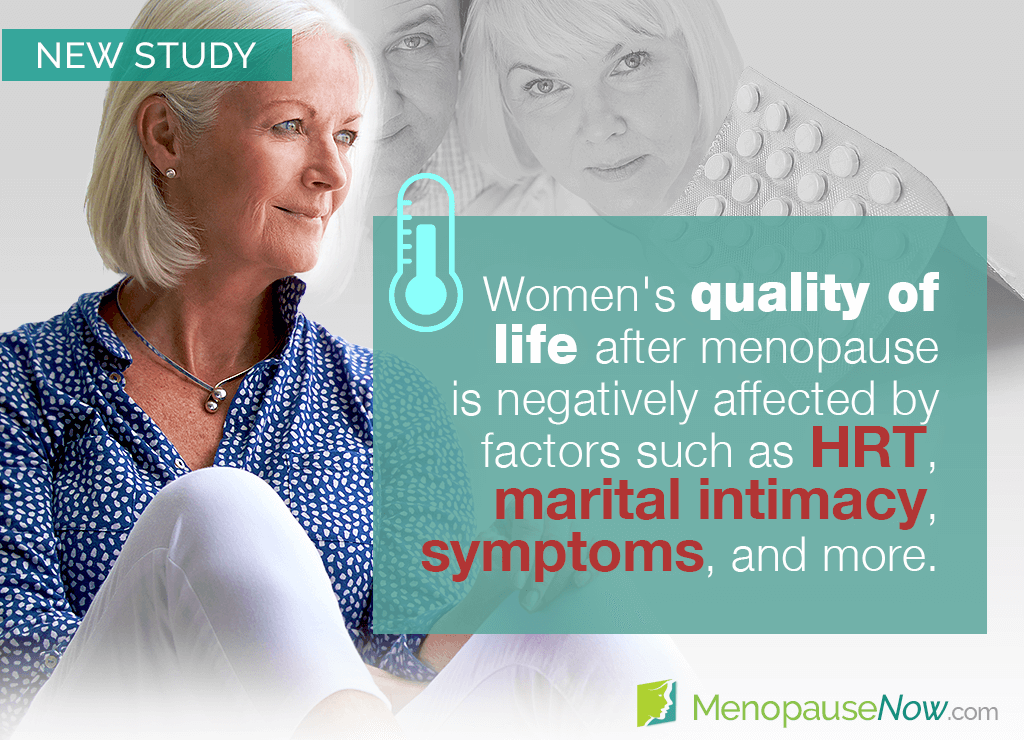While it is commonly known that women's quality of life during perimenopause is generally severely compromised by the discomforts, much less is known about their life after the transition. To shed some light on the subject, South Korean researchers evaluated the factors that affect postmenopausal women's quality of life.
Study Design
For the purpose of this 2020 correlation research, scientists recruited 194 postmenopausal women. It was conducted at the women's clinic in Changwon, South Korea. The results were published in the Korean Journal of Women Health Nursing.
Women were given various questionnaires to fill out, which assessed experienced menopause symptoms, marital intimacy (including sexual activity, relationship with the spouse, etc.), the use of hormone replacement therapy (HRT), overall quality of life, and demographic data.
Study Findings
Researchers found a significant negative correlation between quality of life and menopause symptoms, which means that increased menopause symptoms lowered women's life quality.
There was a strong positive correlation between the quality of life and marital intimacy, which means that increased marital intimacy led to an improved quality of life.
Overall, the factors that affected postmenopausal women's quality of life the most (59.2%) were HRT use, marital intimacy, monthly family income, menopausal symptoms, and education level.
What Does It Mean?
What is evident from the results of this correlation research study is that women's struggles are not limited to perimenopause. There are numerous factors that continue negatively affecting women's quality of life far into their postmenopausal years.
Since women typically spend more than a third of their lives in postmenopause, putting efforts into improving their quality of life is of utmost importance.1
Researchers suggest that healthcare providers should offer women transitioning out of their fertility adequate guidance on HRT as well as means to relieve their symptoms and boost marital intimacy. Such resources should also be made available to women with low income and low education levels.
Sources
- Korean Journal of Women Health Nursing. (2020). Factors influencing quality of life in post-menopausal women. Retrieved March 10, 2021 from https://kjwhn.org/journal/view.php?number=894
Footnotes:
- Iranian Red Crescent Medical Journal. (2015). Quality of Life of Postmenopausal Women and Their Spouses: A Community-Based Study. Retrieved March 10, 2021 from https://www.ncbi.nlm.nih.gov/pmc/articles/PMC4441780/

